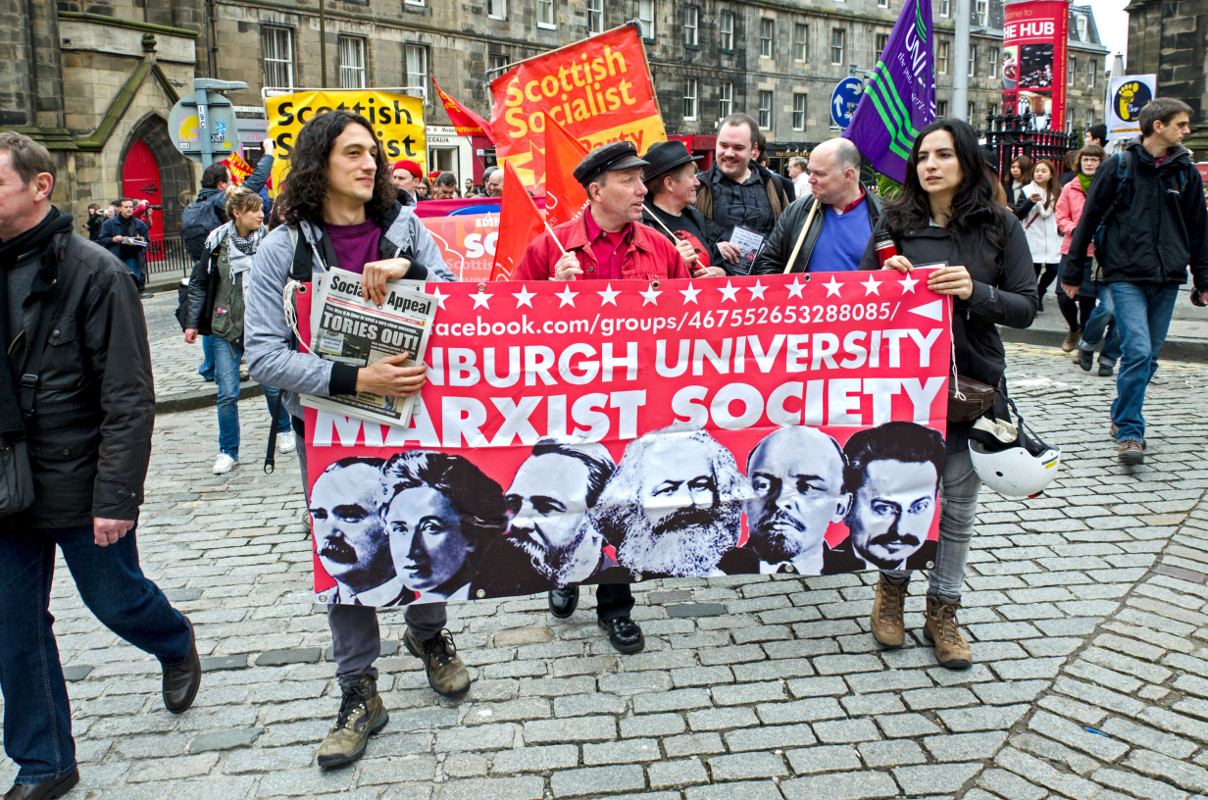Education
Intersectionality and Popper's Paradox
At the height of the Cold War, Western Marxists foresaw that the opportunity for an armed socialist revolution was bleak.

Conservative rationalist Karl Popper wrote in The Open Society and Its Enemies that “unlimited tolerance must lead to the disappearance of tolerance.” In a society that tolerates intolerant forces, these forces will eventually take advantage of the situation and bring about the downfall of the entire society. The philosophical foundation of this belief can trace its roots to Plato’s ideas of the republic or Machiavelli’s paradox of ruling by love or fear, and a practical example of this in action is jihadists taking advantage of human rights laws. Nothing should be absolute and without reasonable boundaries, not even freedom. In light of this, there are three observable, identifiable ways in which this latest fad of intersectionality is taking advantage of and destroying the rational enlightenment roots of Western academia from within. The approaches are, namely, infiltration, subversion, and coercion.
***
On the face of it, infiltration at first sounds conspiratorial and even counterintuitive. There is, of course, no grand conspiracy or a cabal with a smoke-filled headquarters in the Swiss Alps led by a bald, one-eyed man stroking a cat. The roots of this recent phenomenon, however, can be traced back to Central Europe. At the height of the Cold War, Western Marxists foresaw that the opportunity for an armed socialist revolution was bleak. Gramscian Eurocommunists like Marcuse and Dutschke developed what is now known as the long march through the institutions, wherein every building block of society, from professions, business, and academia to the armed forces, needed to be infiltrated by agents of change from within.

In modern times, the rise of interdisciplinary research aided by intersectional, feminist, and social justice pedagogy, has followed this same template. For example, in a 2016 paper in the feminist journal Hypatia, a pedagogical priority was designed by which women’s studies departments could train students to infiltrate disciplines as “symbolic ‘viruses’ that infect, unsettle, and disrupt traditional and entrenched fields.” Likewise, in another case, two Canadian professors designed what they themselves claim to be “Trojan horse” pedagogy, where social justice themes and ideas are included as interdisciplinary research for unassuming students.
Similarly, middle school teachers are teaching social justice while teaching math. In another instance, a feminist academic wants to destroy the “traditional lens” of looking at “white-hetero-patriarchal” science by revisionism through a feminist lens. Hundreds of well-documented similar instances can be found littered across the Internet.
Subversion, as the second approach, requires interdisciplinary research to dilute the core expertise of any subject, thereby giving an equal platform and standing to unscientific, dogmatic, and ideological literature alongside established scientific methods. An example would be one of Cordelia Fine or Angela Saini’s polemics now being accepted as established peer-reviewed science.
SO happy that Cordelia Fine won @royalsociety prize for the great Testosterone Rex. My review for the Guardian: https://t.co/a8ej3V3K05
— Sarah Ditum (@sarahditum) September 19, 2017
The dilution of academic fields is not where it ends however. The promotion of transgenderism as settled science and arbitrary pronouns like them/theirs being used in schools and universities are further examples of subversion. In every Western university (including where I research), the casual usage of made up pronouns is being promoted by a small minority of academics and students. One risks being marked as a bigot if one chooses to question or debate such arbitrary policies. Every university has Marxist and feminist reading groups and departments that essentially control events, doctoral training modules that include methods that prefer non-positivist research, and journal publications wherein the chances of one being censored are higher if he or she dares to question groupthink.

The third approach involves coercion, or simply the tyranny of minority. A handful of students, instigated by a handful of academics, especially from intersectional disciplines and Marxist-feminist-post-colonial and gender studies backgrounds and departments, now attempt to dictate what can or cannot be taught, discussed, or even debated at a university. The cases of deplatforming and shouting down Richard Dawkins, Christina Hoff Sommers, Ben Shapiro, and Charles Murray are already evident, as are well-documented incidents at Berkeley and Mizzou. The recent threats to Third World Quarterly for publishing something that went against the hitherto received wisdom of post-colonial literature is yet another example.
The “decolonize” madness currently found at elite Western centers of excellence, such as Cambridge, Oxford, and Yale, are still more case studies of coercion, more often than not led by students and ideologues posing as professors. In one act of censorship, a group of university professors came together to cancel a play that was critical of intersectionality, identity politics, and Black Lives Matter, arguing that it was done for the emotional well-being of their students. Similarly, an essay in Heritage by a Boise State University professor that questioned the intellectual history of the meaning of gender was shut down by university officials after an outcry that the article represented “the root of genocide”. Two simple patterns of this coercion emerge. First, no argumentation or debate is deemed permissible, and second, there are always a handful of academics who are instigating.
Recently, British journalist Toby Young had his article deleted from the Teach First website after he questioned what is realistically achievable for schools in reducing achievement gaps. The censorship suggested that even mentioning well-established psychometric research is now a transgression and liable to be silenced as it might be uncomfortable for certain ideologies. My fellow Quillette and Telegraph columnist, Charlie Peters, recently highlighted an incident where a straightforward debate in a class was considered invalid because the opinion was uttered by a Caucasian male. This is not uncommon or simply a British university problem. On the contrary, race and gender now form the only basis of validation determining whether or not many ideas or speakers are considered worthy. Similarly, in the Soviet Union, one’s ideas would be judged depending on which social and economic strata one was born into. In the same way, a hierarchy is slowly forming at universities. Recently, a tweet of a U-Penn tutor about the tactic of progressive stacking caused a great deal of furor. She made a tactical error in tweeting it, but it gave the rest of us a glimpse into the discriminatory teaching practices that go on in certain sections of academia, including admissions.
Of course the silent majority of university students, professors, and taxpayers who fund these courses are not as ideologically invested as their radical colleagues. But the silent majority are also usually irrelevant, as the history of humanity illustrates. In the Soviet Union, the majority of the Russian civilians were not Stalinists nor were most of the Chinese civilians hardcore Maoist Red guards. Today in the West, intersectional departments are acting as commissars who are attempting to set the terms of the debate. They are increasingly framing opposition to their ideas as violence against their personhood. In select institutions, gullible administrators are adding fuel to the fire by actually paying students to monitor each other for micro-aggressions and other markers of ideological impurity. Rudi Dutschke would be proud.
***
As Victor Davis Hanson and Roger Scruton pointed out in their books, the first casualty of radicalism is classical education. In India, where I come from, it was moderate liberals as well as imperial conservatives who wanted the British Raj to establish science colleges to promote Renaissance values in order to counter the dogma of medieval religions. Today in the West, classical education is under threat by intersectional and quasi-Marxist disciplines such as post-colonialism and gender studies which are trying to change the rules of debate by stifling viewpoints, hijacking disciplines, and peddling pseudoscientific gibberish. As Popper’s paradox predicts, the infiltration, subversion and coercion of Western academics is now occurring because the tolerance of liberal academia has enabled intolerance to flourish.






